Ruto's Corruption Nightmare: Kenyan Leaders Entangled in Bribery Scandal

President William Ruto has intensified his criticism of the Kenyan Parliament, accusing it of fostering corruption, an assertion that has drawn sharp reactions from Members of Parliament (MPs) and civil society organizations. During a joint Parliamentary Group meeting in Karen, Nairobi, on August 18, 2025, President Ruto alleged that some members of a parliamentary committee received Sh10 million to pass an anti-money laundering law. This specific accusation targeted the 15-member National Assembly’s Justice and Legal Affairs Committee, which had processed the bill to amend the Anti-Money Laundering and Combating of Terrorism Financing Laws.
The President's remarks have led to a significant uproar within the legislative body, with MPs expressing concerns about a perceived leadership vacuum and a failure to protect Parliament’s constitutional mandate as the electorate’s watchdog. National Assembly Minority Leader Junet Mohamed criticized the Executive for overstepping its boundaries, particularly regarding banking regulations. He strongly advised citizens to disregard requests from banks for explanations on large sum withdrawals, stating that no law mandates such disclosures and that only Parliament has the authority to legislate on banking transactions. Mohamed also warned the executive against enforcing policies without parliamentary approval, referencing a past rejected circular from the Central Bank governor.
In response to President Ruto's bribery allegations, Rarieda MP Otiende Omollo called for the Powers and Privileges Committee to summon the President, or failing that, the Head of Public Service and the Secretary to the Cabinet, to provide evidence for his claims. Similarly, Senate Accounts Committee Chairperson Moses Kajwang urged House speakers to summon the President, citing Article 125 of the Constitution which grants Parliament the power to summon any person for information. Mombasa Woman Representative Zamzam Mohamed highlighted the pressure MPs are facing amidst these accusations.
Amidst these accusations, President Ruto announced the formation of a multi-agency team to spearhead Kenya’s war on corruption. Chaired by the Executive Office of the President, this team includes representatives from 11 state institutions, such as the Attorney General’s office, National Intelligence Service, Ethics and Anti-Corruption Commission (EACC), Office of the Director of Public Prosecutions (ODPP), and the Central Bank of Kenya (CBK), among others. Ruto emphasized the need for independent institutions to enhance their efforts against corruption, which he stated has depleted national resources and eroded public trust.
However, the legality and constitutionality of this multi-agency team have been challenged in the High Court. Nakuru Surgeon Dr. Magare Gikenyi and three co-applicants filed a case, leading Judge Bahati Mwamuye to issue conservatory orders staying the operations and implementation of the President’s proclamation. The applicants contend that the President lacks the constitutional authority under Article 132 to establish an anti-corruption agency, arguing that such powers are exclusive to existing independent bodies like the EACC. They further argue that the team duplicates duties, represents an imprudent use of public funds, and could lead to biased outcomes or political witch-hunts, especially with the Executive heading the team and the involvement of agencies like the Directorate of Criminal Investigations (DCI) and the National Intelligence Service (NIS), which they argue compromises their independence. The applicants also pointed to alleged corruption in projects like the Social Health Authority (SHA) system and e-Citizen platform, implying that the President’s team could shield the executive from scrutiny.
Civil Society Organizations (CSOs) operating under the National Integrity Alliance have also weighed in, urging President Ruto to name the lawmakers involved in corruption rather than making broad accusations through the media. These groups, including the Kenya Human Rights Commission (KHRC) and Transparency International-Kenya (TI-Kenya), accused the President of being a mastermind of corruption and called for swift enforcement of the Conflict of Interest Act, 2025. They suggested that if the President is serious about fighting corruption, he should present evidence to facilitate arrests, citing the Auditor General’s report that flagged procurement flaws in government programs allegedly linked to State House, indicating potential conflicts of interest and political interference.
Recommended Articles
Kenya's Legal Battle Heats Up: LSK Leadership Under Siege Amidst Appointment Controversy

LSK President Faith Odhiambo's appointment as vice-chairperson of a panel for victim compensation has sparked intense de...
Ghana's Justice in Crisis: Public Fury Mounts Over Year-Long Delay in ORAL Case Prosecutions

The debate over Ghana's delayed corruption prosecutions, particularly those stemming from the ORAL investigations, highl...
Ghana's Corruption Crackdown: Flawed Recovery Claims and Presidential Stances Rock Nation!

Ghana faces an intense national debate over corruption and the recovery of stolen state assets through the Operation Rec...
Convicted Lawmaker Farouk Lawan Emerges from Disgrace with Presidential Pardon, Eyeing New Beginning

Former Kano lawmaker Farouk Lawan, notorious for his conviction in a $500,000 bribery scandal during the 2012 fuel subsi...
We Prayed for Change, Then Became the System
We once marched for justice, now we manage the corruption we protested against. How Nigeria’s “change generation” became...
You may also like...
Mid-Air Terror: Super Eagles' Flight in Dramatic Emergency Landing
The Nigeria Super Eagles delegation experienced a mid-air scare when their chartered flight from Polokwane to Uyo was fo...
High Stakes Showdown: Super Eagles Battle Benin in Must-Win World Cup Qualifier
)
Nigeria's Super Eagles face the Benin Republic's Cheetahs in a crucial 2026 FIFA World Cup qualifier in Uyo. With Benin ...
Massive Update: Jessica Rothe Confirms 'Happy Death Day 3' Will Conclude Tree's Journey
Fans of the "Happy Death Day" franchise can rejoice as star Jessica Rothe confirms the third film is in the works. While...
Sean Penn Joins Lumière Festival in France as Park Circus Expands Warner Classics Library with Gem-Studded Slate

Sean Penn, guest of honor at the Lumière Film Festival in Lyon, delivered an emotional opening speech celebrating Jack N...
South Africa's Poetic Remembrance: The Lasting Echo of Sarah Baartman

A new documentary delves into the life of Sarah Baartman, moving beyond exploitation to highlight her depth, multilingua...
Celebrity Shockwave: Katie Price's New Look Ignites Public Worry!
Katie Price has sparked alarm among fans with a recent Instagram post showcasing dramatic weight loss, fueling fears abo...
Strictly Stunner: Shocking Spoiler Leaves Fans Breathless and Baffled!
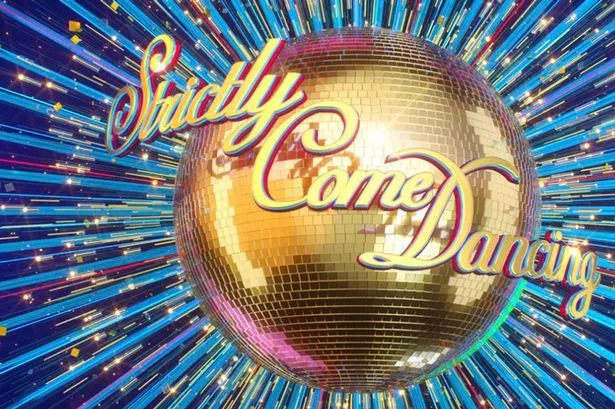
This week's Strictly Come Dancing saw the second elimination results prematurely leaked online, much to the dismay of fa...
Madame Tussauds London's Quirky New Exhibit: A Wax Sausage Roll Joins the Stars
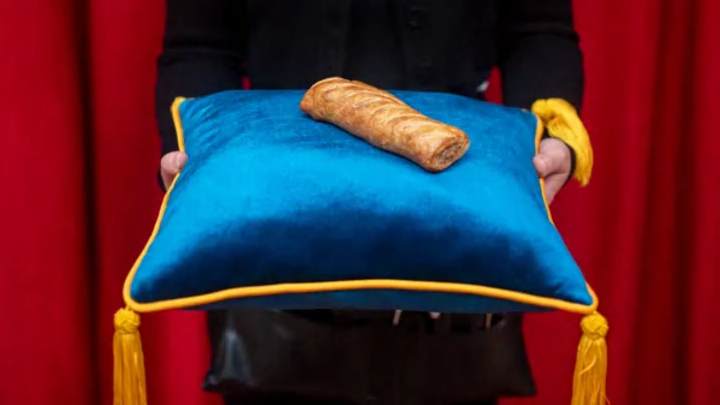
Madame Tussauds London has unveiled its first-ever food item wax figure: a Greggs sausage roll. This unique addition cel...